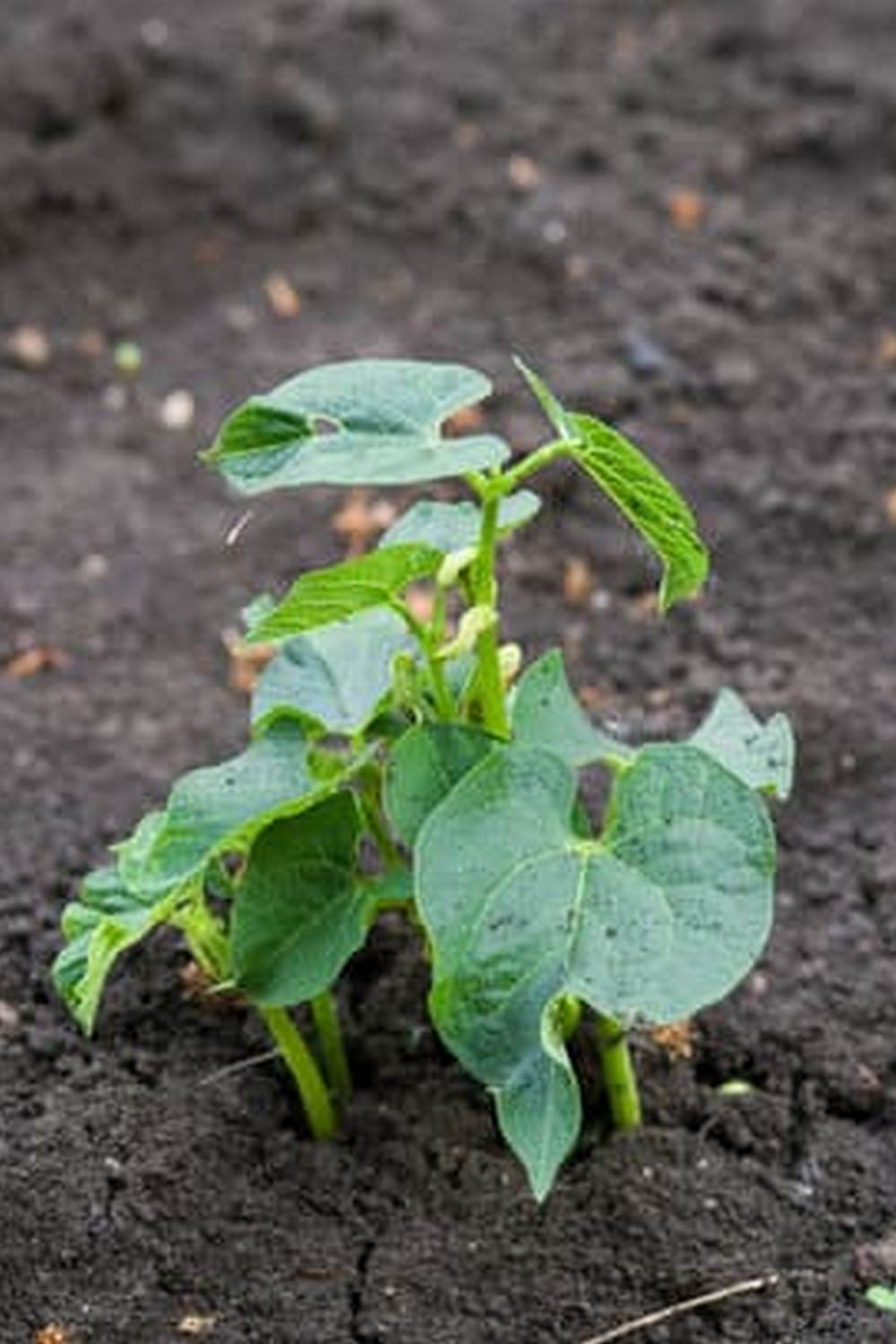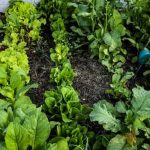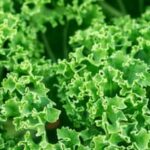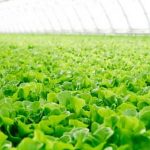Vegetable gardens can be a source of pride and nourishment for many gardeners, but they are also susceptible to attack from various insect pests that can damage or destroy crops. Insecticide for vegetable gardens plays a crucial role in protecting plants from these pests and ensuring a bountiful harvest. Whether you are a novice or experienced gardener, understanding the importance of using insecticides can help you maintain the health and productivity of your garden.
Insects such as aphids, caterpillars, beetles, and mites are common pests that can wreak havoc on vegetable plants. These pests feed on plant tissue, causing wilting, stunted growth, and in severe cases, complete crop loss. Using insecticides in vegetable gardens is essential to keep pest populations under control and prevent extensive damage to crops. By incorporating insecticides into your garden care routine, you can effectively manage pest infestations and protect your hard work.
Insecticides for vegetable gardens come in different types, including chemical-based and natural/organic options. While chemical insecticides provide quick and effective control of pests, they may also pose risks to beneficial insects, animals, and the environment if not used correctly.
Natural and organic alternatives offer safer options for controlling pests while minimizing harm to the ecosystem. Understanding the types of insecticides available and how to properly apply them will help you make informed decisions when managing pest problems in your vegetable garden.
Common Insect Pests in Vegetable Gardens
Vegetable gardens are susceptible to a variety of insect pests that can wreak havoc on your plants if left unchecked. Identifying these common pests is crucial for effective pest management in your garden. Here are some of the most prevalent insect pests you may encounter in your vegetable garden:
- Aphids: These small, pear-shaped insects feed on the sap of plants and can cause stunted growth and distorted leaves.
- Caterpillars: Caterpillars are the larval stage of moths and butterflies, known for chewing through leaves and fruits of vegetables.
- Beetles: Beetles such as Colorado potato beetles and flea beetles can defoliate plants rapidly, leading to significant damage.
- Thrips: These tiny insects feed on plant juices, causing stippling and discoloration on the leaves.
Dealing with these common insect pests in a timely manner is essential to prevent irreversible damage to your vegetable garden. While there are natural predators that can help keep these pests in check, sometimes the use of insecticides becomes necessary to protect your crops.
When faced with a severe infestation that threatens the health and yield of your vegetable plants, utilizing an appropriate insecticide for vegetable gardens is essential. Whether opt for chemical or organic options, understanding the types of insecticides available can help you make an informed decision on how best to combat these garden invaders effectively.
The Importance of Using Insecticides
Insect pests can wreak havoc on vegetable gardens, causing damage to plants and reducing yields. To effectively protect your vegetables from these destructive insects, it is important to understand the significance of using insecticides in your garden. Insecticides play a crucial role in controlling and managing pest populations, thereby ensuring the health and productivity of your vegetable plants.
Here are some key reasons why using insecticides is essential for maintaining a thriving vegetable garden:
- Prevention of crop damage: Insect pests such as aphids, caterpillars, and beetles can cause significant harm to vegetable crops by feeding on leaves, flowers, fruits, and roots. By using insecticides, you can prevent these pests from damaging your plants and reduce the risk of yield losses.
- Protection against diseases: Some insect pests also act as vectors for plant diseases, spreading pathogens that can infect and kill vegetable plants. By controlling pest populations with insecticides, you can minimize the spread of diseases and promote the overall health of your garden.
- Improved plant growth: When left unchecked, insect pests can stunt the growth of vegetable plants and inhibit their ability to produce healthy harvests. Using insecticides helps to maintain optimal growing conditions for your crops, allowing them to thrive and reach their full potential.
In order to effectively combat insect pests in your vegetable garden, it is important to choose the right type of insecticide based on the specific pests you are targeting. Whether you opt for chemical insecticides or natural alternatives, selecting the appropriate product will ensure successful pest control while minimizing harm to beneficial insects and the environment. Remember to always read and follow label instructions when applying any type of insecticide to ensure safe usage and maximum effectiveness.
Types of Insecticides for Vegetable Gardens
Insecticides play a crucial role in controlling insect pests that can wreak havoc on vegetable gardens. There are various types of insecticides available for vegetable gardens, each with its own unique features and benefits. One common type of insecticide is the chemical or synthetic insecticides, which are formulated to specifically target and eliminate harmful insects. These insecticides often provide quick and effective results in managing pest populations in vegetable gardens.
Another type of insecticide suitable for vegetable gardens is biological or microbial insecticides. These products contain living organisms such as bacteria, fungi, or viruses that target specific insect pests without harming beneficial insects or other plants. Biological insecticides are considered environmentally friendly and safe for use in organic gardening practices. Additionally, they often have a minimal impact on non-target organisms, making them a preferred choice for many gardeners looking for sustainable pest control solutions.
In recent years, there has been an increasing interest in natural and organic alternatives to chemical insecticides for vegetable gardens. These alternatives include botanical oils, neem oil, garlic sprays, and soap-based products that help deter or eliminate insect pests while minimizing harm to the environment and human health.
Many of these natural options are readily available at garden centers or can be homemade using simple ingredients found at home. Integrating natural and organic alternatives into pest management strategies can promote a balanced ecosystem in vegetable gardens while effectively controlling pest populations.
| Insecticide Type | Features |
|---|---|
| Chemical/Synthetic Insecticides | Quick and effective results; target specific insects |
| Biological/Microbial Insecticides | Environmentally friendly; safe for beneficial insects; minimal impact on non-target organisms |
Natural and Organic Alternatives to Chemical Insecticides
When it comes to protecting our vegetable gardens from insect pests, many gardeners prefer using natural and organic alternatives to chemical insecticides. These options are not only safer for the environment but also for our health, as they do not contain harmful chemicals that can potentially contaminate our produce.
One popular natural alternative to chemical insecticides is Neem oil, which is derived from the seeds of the Neem tree. Neem oil works by disrupting the insect’s hormonal system, making it an effective solution for controlling a wide range of pests such as aphids, whiteflies, and spider mites.
Additionally, diatomaceous earth is another organic option that can be used to control insects in vegetable gardens. Diatomaceous earth is made from fossilized algae and works by absorbing lipids from the exoskeletons of insects, ultimately causing them to dehydrate and die.
Furthermore, planting companion plants that repel or deter insects can also help reduce the need for insecticide use in vegetable gardens. For example, planting marigolds can help repel nematodes and tomato hornworms, while basil can deter mosquitoes and flies. By incorporating these natural methods into our gardening practices, we can minimize the use of insecticide for vegetable gardens while still effectively managing pest populations.
How to Properly Apply Insecticides in Vegetable Gardens
Choosing the Right Insecticide
When it comes to applying insecticides in your vegetable garden, it is crucial to choose the right product for the specific pests you are dealing with. Different insecticides target different types of insects, so identifying the pest first is essential. Take note of which insects are causing damage to your plants and research the best insecticide for effectively controlling them. Look for products labeled specifically for use on vegetables to ensure their safety and effectiveness.
Timing and Frequency of Application
Proper timing and frequency of insecticide application are key factors in successfully managing pest infestations in your vegetable garden. It is important to follow the instructions on the insecticide label carefully to determine when and how often the product should be applied. Some insecticides may need to be reapplied after a certain period to maintain their effectiveness, especially if there is heavy rainfall or irrigation that can wash away the product.
Application Techniques
When applying insecticides in your vegetable garden, it is important to use proper techniques to ensure maximum coverage and efficacy while minimizing risks to human health and the environment. Always wear protective clothing such as gloves, long sleeves, and a mask to avoid direct contact with the chemicals.
Follow guidelines for mixing and diluting the insecticide accurately to prevent overdosing or underdosing. Use a sprayer that provides uniform coverage of the plants while avoiding spraying during windy conditions to prevent drift.
Tips for Preventing Insect Infestations in Vegetable Gardens
Practice Crop Rotation
Crop rotation is a key strategy in preventing insect infestations in vegetable gardens. By rotating the types of vegetables planted in different areas of the garden each season, you can disrupt the life cycle of many common insect pests. For example, planting tomatoes in one area one year and moving them to a different spot the next year can help prevent the buildup of pests that target tomatoes.
Use Row Covers
Row covers are a physical barrier that can be placed over rows of vegetables to protect them from insect pests. These covers allow sunlight, air, and water to reach the plants while keeping out harmful insects. Row covers are especially useful for protecting crops like cabbage, broccoli, and kale from pests like cabbage worms and flea beetles.
Maintain Proper Garden Hygiene
Keeping your vegetable garden clean and free of debris can also help prevent insect infestations. Eliminate any weeds that may harbor pests, remove dead or diseased plant material promptly, and regularly clean up fallen fruits or vegetables. Insects are attracted to decaying organic matter, so by maintaining good garden hygiene, you can reduce the risk of infestations.
By following these tips for preventing insect infestations in your vegetable garden, you can reduce the need for using insecticides while still enjoying a healthy and productive harvest. Remember that prevention is often easier and more effective than trying to control pest populations once they have become established. With proper planning and maintenance, you can create a thriving vegetable garden that is less susceptible to damaging insect pests.
Best Practices for Integrated Pest Management in Vegetable Gardens
Integrated Pest Management (IPM) is a holistic approach to managing pest problems in vegetable gardens that aims to minimize the impact on the environment while effectively controlling pests. One of the key components of IPM is the use of insecticides, which play a vital role in keeping insect populations under control. When it comes to choosing the right insecticide for vegetable gardens, it is essential to consider both effectiveness and safety for plants, humans, and beneficial insects.
One common type of insecticide for vegetable gardens is a botanical insecticide, which is derived from plants and generally considered safer than synthetic chemical insecticides. For example, neem oil is a popular botanical insecticide that acts as a repellant, disrupts feeding behavior, and interrupts the life cycle of many common garden pests. Another natural option is spinosad, which targets certain types of insects while posing low risk to non-target organisms.
In addition to botanical insecticides, there are also mineral-based insecticides like diatomaceous earth that can be effective in controlling pests in vegetable gardens. Diatomaceous earth works by drying out the exoskeletons of insects upon contact, leading to their eventual demise. It is important to follow instructions carefully when using any type of insecticide and to apply them at the appropriate times during the growing season for maximum effectiveness without harming beneficial insects or pollinators.
| Type of Insecticide | Examples |
|---|---|
| Botanical Insecticide | Neem Oil, Spinosad |
| Mineral-Based Insecticide | Diatomaceous Earth |
Conclusion
In conclusion, using insecticides in vegetable gardens can have numerous benefits for both the plants and the gardeners themselves. By effectively controlling insect pests, such as aphids, caterpillars, and beetles, gardeners can protect their crops from being damaged or destroyed. This ultimately leads to higher yields and a more abundant harvest of fresh produce. Additionally, using insecticides can help prevent the spread of diseases carried by certain insects, further safeguarding the health of the plants.
Moreover, incorporating insecticides into a comprehensive integrated pest management plan can reduce the need for excessive use of chemicals and promote a more sustainable approach to gardening. By combining various strategies such as crop rotation, companion planting, and biological control methods with targeted insecticide applications when necessary, gardeners can effectively manage pest populations while minimizing environmental impact. This holistic approach not only ensures a healthier garden ecosystem but also contributes to overall biodiversity in the area.
While chemical insecticides are commonly used in vegetable gardens, it’s important to consider natural and organic alternatives as well. These options provide effective pest control without harmful residues that may impact beneficial insects or contaminate the soil. Ultimately, finding the right balance between using insecticides responsibly and incorporating other pest management practices is key to maintaining a thriving vegetable garden that is resilient against potential threats from insect pests.
Frequently Asked Questions
What Is the Best Insecticide for Vegetables?
The best insecticide for vegetables is often considered to be one that is organic and safe for consumption. Products containing ingredients like neem oil, pyrethrin, or spinosad are popular choices among gardeners looking to protect their crops from pests.
Can I Use Insecticide in My Vegetable Garden?
Yes, you can use insecticide in your vegetable garden, but it’s important to choose a product that is labeled safe for edible plants. Be sure to follow the directions on the label carefully, especially when it comes to how soon you can harvest after application.
Which Insecticide Is Used in Vegetables?
There are several insecticides used in vegetables depending on the type of pests you are dealing with. Common options include bacillus thuringiensis (Bt) for caterpillars, diatomaceous earth for crawling insects, and insecticidal soap for soft-bodied pests. Always identify the pest before selecting an insecticide for best results.

If you’re looking to get into vegetable gardening, or are just looking for some tips on how to make your current garden better, then you’ve come to the right place! My name is Ethel and I have been gardening for years. In this blog, I’m going to share with you some of my best tips on how to create a successful vegetable garden.





